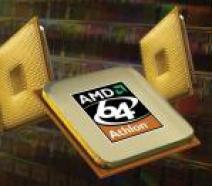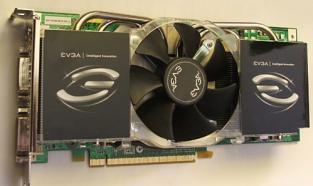OOPS! You forgot to upload swfobject.js ! You must upload this file for your form to work.
Processors AMD Mullins has not yet attracted the tablets producers
![]()
|
xtreview is your : Video card - cpu - memory - Hard drive - power supply unit source |
|
|||
|
|
||||
 Recommended : Free unlimited image hosting with image editor
Recommended : Free unlimited image hosting with image editor
|
POSTER: computer news || PROCESSORS AMD MULLINS HAS NOT YET ATTRACTED THE TABLETS PRODUCERS |
DATE:2014-05-18 |
|
|
Over the past few years, AMD has released several solutions for use in tablet devices running Windows. Processors were first Honda, but they were high in energy consumption and most impressive performance, and that determined their fate. Following came processors Temash, which were better than predecessors. Finally, late last month were announced processors Mullins . AMD partners presented several projects based on Beema processors, announced simultaneously with the Mullins-oriented laptops, while tablets with new solutions AMD has not been demonstrated. Apparently, the major manufacturers will ignore Mullins also, like its predecessors, although the decision can be a perfect base for budget gaming devices. Unfortunately, AMD can not afford to throw money partners like Intel is doing this to promote their own processors in the tablet market. In 2016, AMD will be able to offer new architectures (including ARM-compatible K12) - maybe then the industry will pay attention to it. | ||
|
|
||
|
xtreview is your : Video card - cpu - memory - Hard drive - power supply unit source |
|
|
|
|
||
|
Xtreview Support  N-Post:xxxx Xtreview Support        |
PROCESSORS AMD MULLINS HAS NOT YET ATTRACTED THE TABLETS PRODUCERS |
| Please Feel Free to write any Comment; Thanks  |
The Japanese representation of AMD offered monetary compensation to the first buyers of Ryzen Threadripper (2017-09-08)
AMD itself would like to believe that mobile processors Ryzen have already been released (2017-09-08)
AMD Vega 20 will find application in accelerating computations (2017-09-08)
AMD Bristol Ridge processors are also available in American retail (2017-09-07)
Advertising Radeon RX 570 for 279 dollars AMD caused a storm of emotions (2017-09-07)
AMD gave details about the history of the Ryzen Threadripper (2017-09-06)
AMD processors with Zen architecture of the second generation will raise frequencies and specific performance (2017-09-05)
On the Germans, AMD Ryzen Threadripper processors produced a predominantly positive impression (2017-09-04)
Video card manufacturers are preparing for the September deficit AMD Radeon RX Vega (2017-08-26)
More recent AMD Ryzen processors do not annoy Linux users with problems (2017-08-26)
Updated chipset drivers for AMD Ryzen and Ryzen Threadripper processors (2017-08-26)
We are looking at Noctua coolers for AMD Ryzen Threadripper (2017-08-25)
AMD again fantasized about the monolithic crystal processors EPYC (2017-08-24)
Japanese shops rushed to reduce prices for AMD processors Ryzen Threadripper (2017-08-24)
AMD promises to do everything possible to return prices for Radeon RX Vega to the recommended level (2017-08-23)
AMD continues to demonstrate the capabilities of its processors using NVIDIA graphics cards (2017-08-23)
These days AMD can tell about the Vega successor (2017-08-22)
Analysts believe that the new processors from Intel and AMD will revive the PC market in the second half of the year (2017-08-22)
AMD is ready to deal with the deficit of Radeon RX Vega 64 (2017-08-19)
The packaging of AMD Vega 10 graphics processors is handled by two different contractors (2017-08-17)
![]()
To figure out your best laptops .Welcome to XTreview.com. Here u can find a complete computer hardware guide and laptop rating .More than 500 reviews of modern PC to understand the basic architecture


7600gt review
7600gt is the middle card range.
We already benchmarked this video card and found that ...

 geforce 8800gtx and 8800gts
geforce 8800gtx and 8800gts  Xtreview software download Section
Xtreview software download Section  AMD TURION 64 X2 REVIEW
AMD TURION 64 X2 REVIEW  INTEL PENTIUM D 920 , INTEL PENTIUM D 930
INTEL PENTIUM D 920 , INTEL PENTIUM D 930  6800XT REVIEW
6800XT REVIEW  computer hardware REVIEW
computer hardware REVIEW  INTEL CONROE CORE DUO 2 REVIEW VS AMD AM2
INTEL CONROE CORE DUO 2 REVIEW VS AMD AM2  INTEL PENTIUM D 805 INTEL D805
INTEL PENTIUM D 805 INTEL D805  Free desktop wallpaper
Free desktop wallpaper  online fighting game
online fighting game  Xtreview price comparison center
Xtreview price comparison center Lastest 15 Reviews


Rss Feeds
Last News
- The new version of GPU-Z finally kills the belief in the miracle of Vega transformation
- The motherboard manufacturer confirms the characteristics of the processors Coffee Lake
- We are looking for copper coolers on NVIDIA Volta computing accelerators
- Unofficially about Intels plans to release 300-series chipset
- The Japanese representation of AMD offered monetary compensation to the first buyers of Ryzen Threadripper
- This year will not be released more than 45 million motherboards
- TSMC denies the presentation of charges from the antimonopoly authorities
- Radeon RX Vega 64 at frequencies 1802-1000 MHz updated the record GPUPI 1B
- AMD itself would like to believe that mobile processors Ryzen have already been released
- AMD Vega 20 will find application in accelerating computations
- Pre-orders for new iPhone start next week
- Radeon RX Vega 57, 58 and 59: the wonders of transformation
- ASML starts commercial delivery of EUV-scanners
- The older Skylake processors with a free multiplier are removed from production
- Meizu will release Android-smartphone based on Helio P40
- AMD Bristol Ridge processors are also available in American retail
- The fate of Toshiba Memory can be solved to the next environment
- duo GeForce GTX 1080 Ti in GPUPI 1B at frequencies of 2480-10320 MHz
- New Kentsfield overclocking record up to 5204 MHz
- Lenovo released Android-smartphone K8

HALO 3 HALO 3 - Final Fight!

PREY Prey is something you don t often see anymore: a totally unigue shooter experience.

computer news computer parts review Old Forum Downloads New Forum Login Join Articles terms Hardware blog Sitemap Get Freebies


